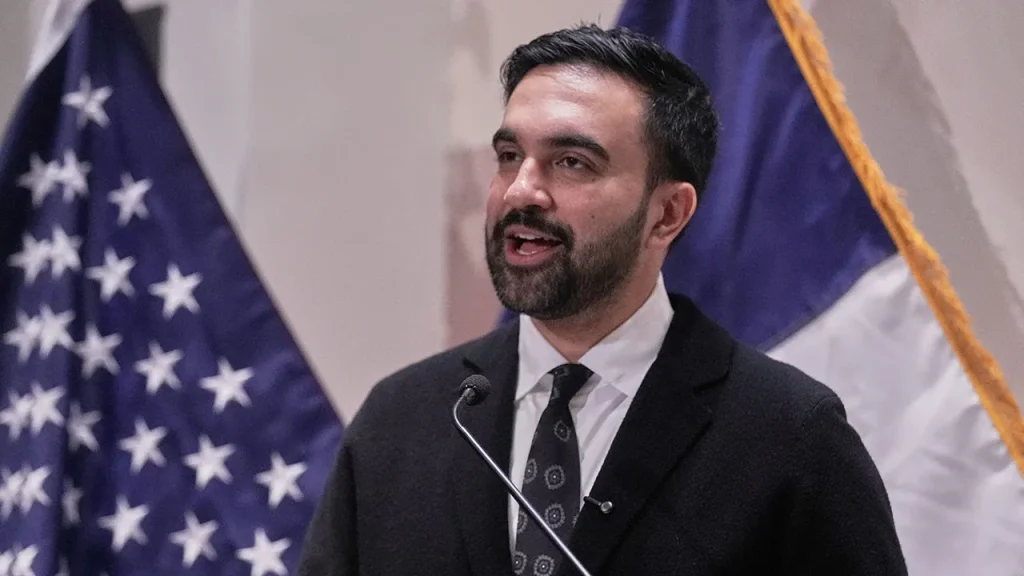New York Mayor-elect Mamdani Rallies Support for Starbucks Workers on Strike
In a bold move that underscores his progressive stance, newly elected New York Mayor Zohran Mamdani called upon his substantial social media following to support striking Starbucks workers this week. Taking to X (formerly Twitter), where he connects with over a million followers, Mamdani made a straightforward appeal: “While workers are on strike, I won’t be buying any Starbucks, and I’m asking you to join us.” His message emphasized collective action, suggesting that consumers could leverage their purchasing power to advocate for fair labor practices. This public stance aligns with Mamdani’s democratic socialist principles, which resonated with voters who elected him over political heavyweight Andrew Cuomo in both the Democratic primary and general election.
The timing of Mamdani’s boycott call was particularly strategic, coinciding with Starbucks’ popular Red Cup Day promotion. This annual event, where customers receive complimentary reusable holiday cups, typically generates significant traffic and revenue for the coffee chain. The union, Starbucks Workers United, dubbed their action the “Red Cup Rebellion” and announced an open-ended strike across numerous locations nationwide. Their social media campaign, using the hashtag #NoContractNoCoffee, urged consumers to refrain from patronizing Starbucks until workers secure fair labor agreements. This coordinated effort represents what the union describes as potentially “the biggest and longest ULP [Unfair Labor Practice] strike in Starbucks history.”
At 34, Mamdani represents a new generation of progressive leadership in American politics. His mayoral victory in November followed a surprising primary win in June, where he defeated former Governor Cuomo by substantial margins in both contests. As a democratic socialist, Mamdani’s public support for labor movements aligns with his broader political identity and the progressive platform that appealed to New York voters. His willingness to take a definitive stand on labor issues so quickly after his election signals a potential shift in how elected officials might engage with corporate practices and worker organizing efforts during his administration.
The Starbucks labor dispute highlights ongoing tensions between major corporations and their increasingly organized workforces. The union’s decision to strike during one of the company’s busiest promotional days demonstrates a sophisticated understanding of leveraging economic pressure points. Workers have voiced concerns about unfair labor practices and are demanding contract negotiations that address their grievances. This conflict emerges amid broader national conversations about worker rights, living wages, and the changing dynamics between employers and employees in the post-pandemic economy. The strike affects dozens of stores across the country, though represents a fraction of Starbucks’ total footprint.
Mamdani’s intervention in this labor dispute illustrates how the boundaries between consumer choice, political action, and governance continue to blur in contemporary American society. By publicly joining the boycott, the mayor-elect effectively transforms personal consumer decisions into collective political expression. This approach represents a significant departure from traditional political engagement with business interests, where elected officials often maintain more neutral stances on specific labor disputes. Mamdani’s direct appeal to his followers to withhold their business as a form of solidarity with workers demonstrates an evolving relationship between political leadership and grassroots economic activism.
As this labor action unfolds, both Starbucks and the newly elected mayor face questions about their next steps. Starbucks, which has historically resisted unionization efforts, must navigate the public relations implications of a high-profile boycott supported by prominent political figures. Meanwhile, Mamdani’s early advocacy for striking workers sets expectations for how his administration might approach business-labor relations once he formally takes office. Neither Mamdani’s office nor Starbucks provided immediate comment on the situation, leaving observers to speculate about potential negotiations, escalation, or resolution of the dispute. The outcome may establish precedents for how similar conflicts between major employers and organized labor play out in New York and potentially nationwide under this new generation of progressive leadership.


